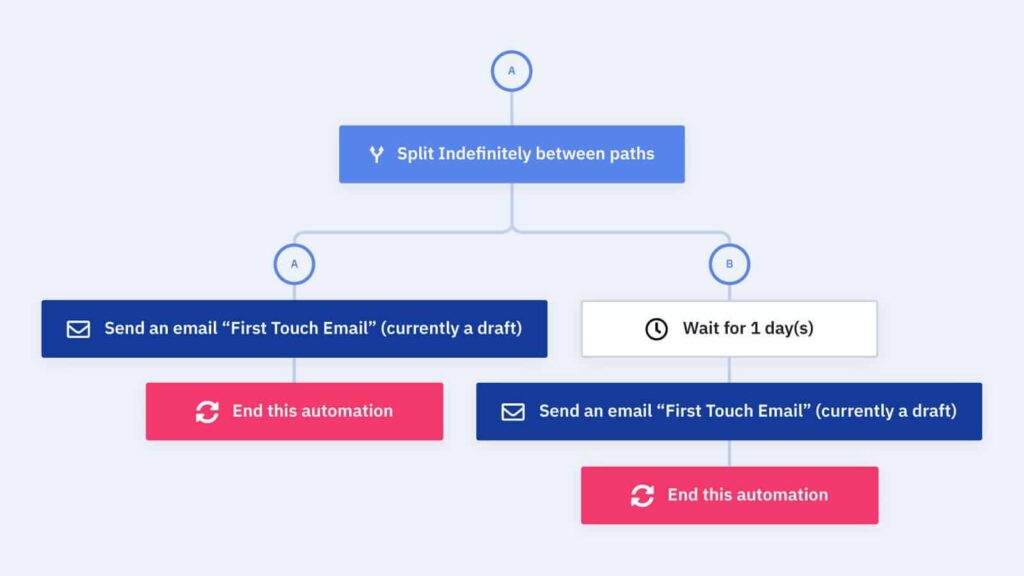According to Litmus, 78% of marketers believe email is important to overall company success. In 2021, it seems impossible for…
According to Litmus, 78% of marketers believe email is important to overall company success. In 2021, it seems impossible for 78% of people to agree on anything which speaks to the effectiveness of email as a marketing channel.
Here are a few reasons your team should invest in your email marketing strategy:

Approximately 50% of the world’s population has an email account. Comparatively, about 36% of the world’s population are Facebook users, and Twitter (less than 1% of the world’s population uses Twitter) doesn’t even begin to compare with either. Email has become a huge part of online life. In an increasingly technology-dependent world, the gap between on and off-line life is closing. When finding a job, working, paying bills, and online shopping all require an email, it becomes extremely hard to live in a developed country without an email address.
You probably know a few family members who quit Facebook (or maybe you have a friend who you wish would) in recent years. But you probably don’t know many people who are bragging about quitting email. This isn’t a knock on social media marketing. It is a case for one of the many benefits of email marketing.

According to the Direct Marketing Association, email marketing is the highest ROI generating tool in the email marketing toolbox
I like money. Cool it, Mr. Krabs.
But seriously, the superior ROI of email marketing can NOT be ignored. Email marketing campaigns are inexpensive to create and quality campaigns deliver great results.

Although there are best practices to follow and an audience to please, for the most part you’re in control of what your email campaign looks like. Social media platforms control the number of characters you use, size of images, length of videos, and to some extent the content of videos.
When using email marketing, you can control almost every aspect of your marketing message from the subject line to the footer.

Hootsuite estimates that 1/19 fans see a business’s non-promoted social media post. A social media feed and an email inbox seem similar on the surface, but the relationship between businesses and email users is not impeded by a 3rd party. On social media, the power of organic reach has been squashed.
The decreased power of organic reach on social media channels ultimately means that businesses are paying to reach people who have liked/followed their page (signed up to receive updates) on social media platforms. In comparison, email marketing allows you to deliver a message to ALL your email subscribers with the push of a button.

Social media and email are both broadcast marketing tools, but reaching a specific segment of your “subscribers” is more difficult on social media.
When posting organically on Facebook, marketers are broadcasting a single message to their entire Facebook audience (even though a small percentage of your list will actually see it in their feed). In comparison, email marketing allows you to send personalized messages (at least “Hi, Firstname”) to email subscribers. Email marketing also allows you to select a segment of your list to send specific relevant messages.
The ability to personalize messages and segment your audience makes email the superior tool for delivering relevant marketing communications to your subscribers.

Email marketing often goes hand in hand with content marketing. Content marketing requires organizations to invest time, money, and effort to create useful content for their target audience. The goal is to create useful content that creates brand affinity and drives website traffic. For a piece of content to do these things, it must be seen.
You can thank me later for that profound piece of marketing wisdom.
That’s where email comes in! Content distribution is an essential part of a content marketing strategy. Email campaigns and email newsletters are some of the best & cheapest content delivery methods available to marketers. The marketing channel’s ability to deliver content quickly and widely makes it an invaluable tool for increasing website traffic.

Email marketing tools like ActiveCampaign, Campaign Monitor, Constant Contact, and others make it easier than ever before for brands to create, test, track, segment, and deliver email marketing campaigns at scale.
With these tools, marketers can create beautifully designed marketing emails, email automation, easily segment their email list, and perform A/B tests (aka split tests) to improve the quality of their email campaigns.
Arguably, the most important aspect of email marketing software is its tracking and reporting capabilities. Great marketing is measurable and changes based on available data. Email marketing software provides your team with a dashboard that displays valuable marketing metrics (click-through rates, conversion rates, unsubscribe rates, & more).
Whether you are a B2B or B2C company, email SHOULD be a part of your marketing mix. We don’t like blanket statements, but email is an effective marketing channel for most organizations. A well-thought-out email marketing strategy will nurture potential customers, help your brand stay top of mind, and drive sales. If you don’t routinely send marketing emails, what are you waiting for?
Copyright © 2017-2025 · Carbon Digital · All Rights Reserved.